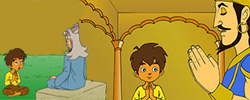
Page 4 End
Charm Jataka,
The story of Culapanthaka in a previous existence, through strenuous in his efforts made him the master of material possessions
Pictured by: PongPang
Coloured by: Pupay
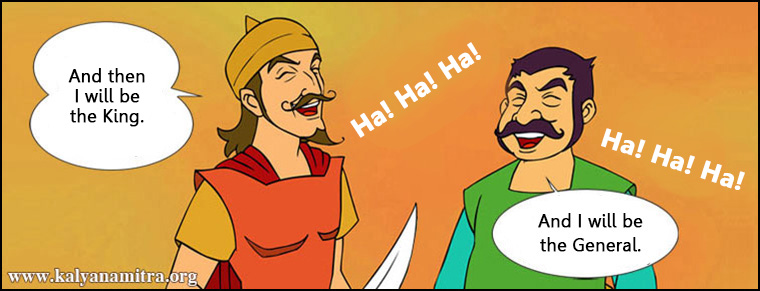
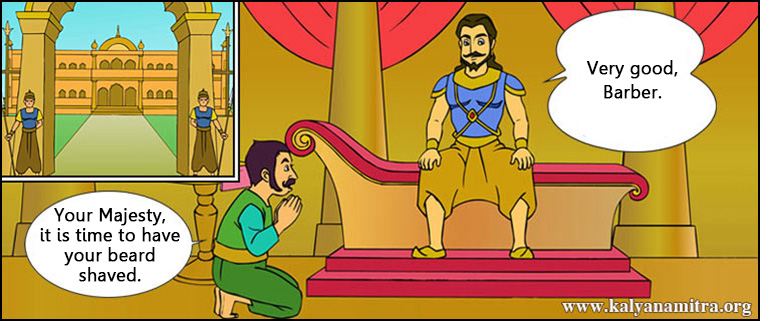
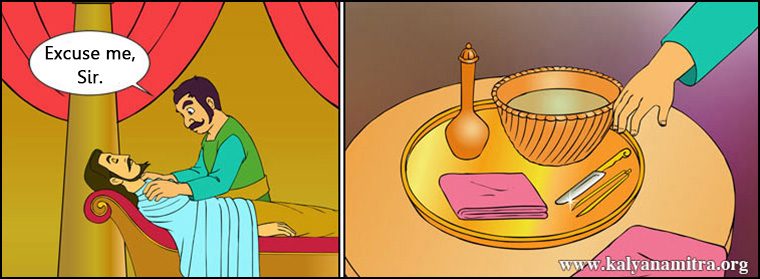
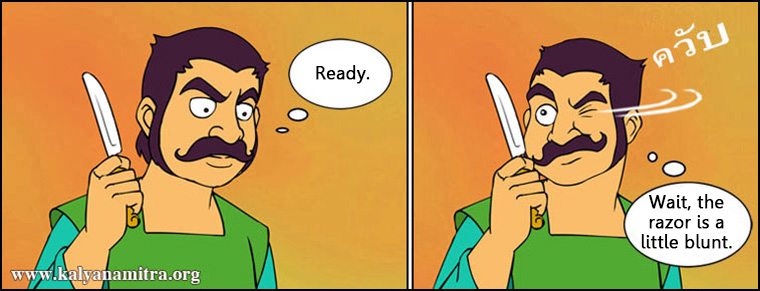
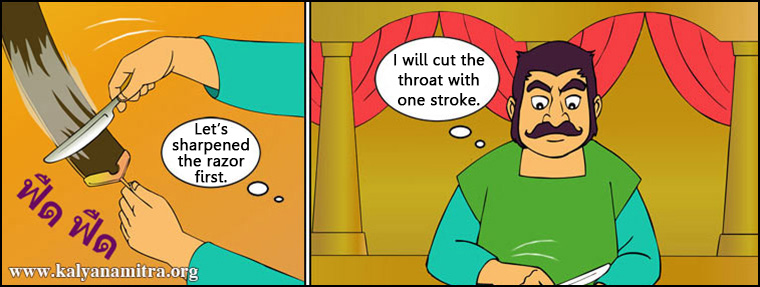
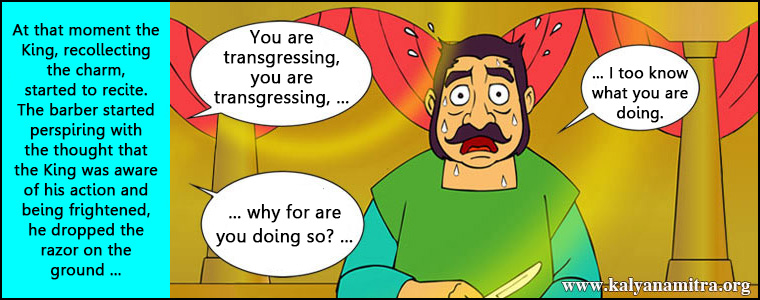
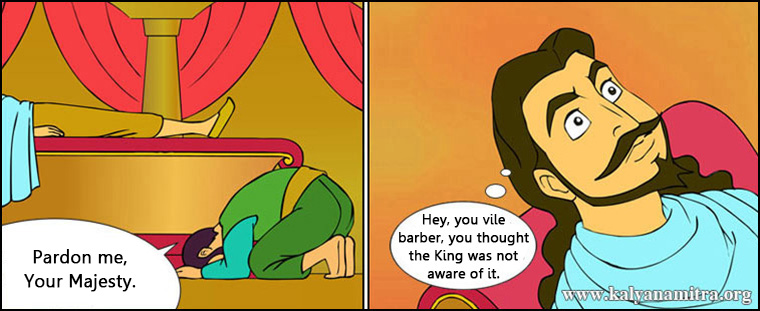
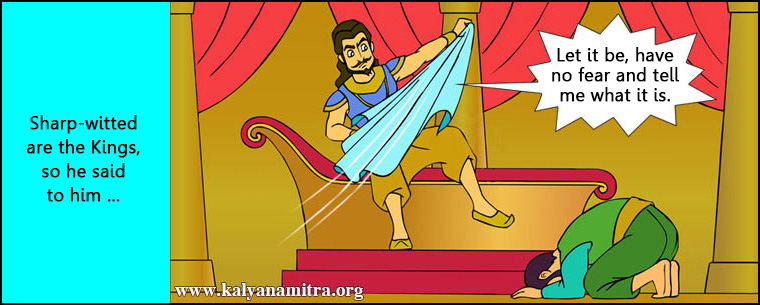
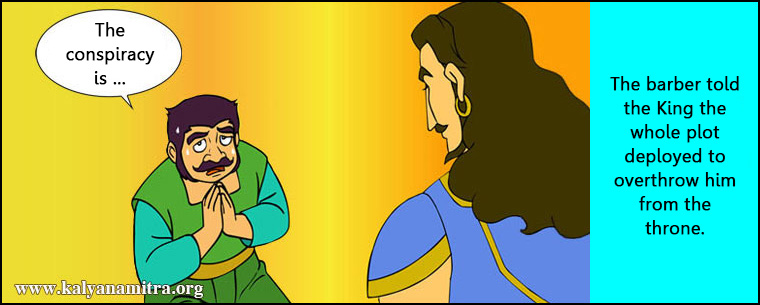
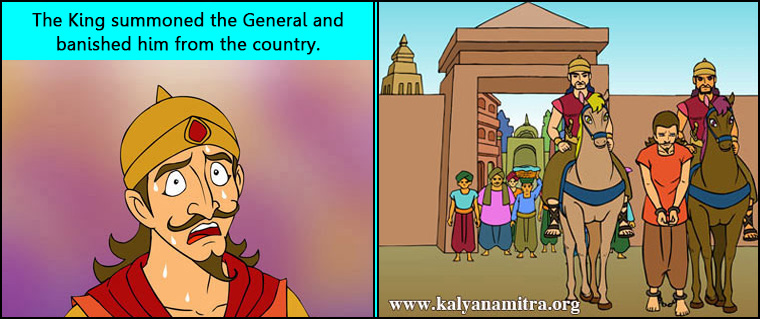
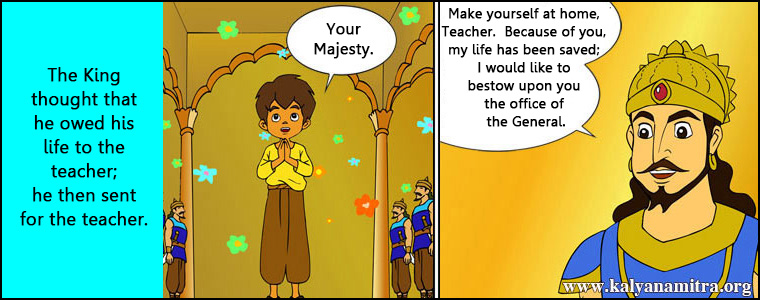
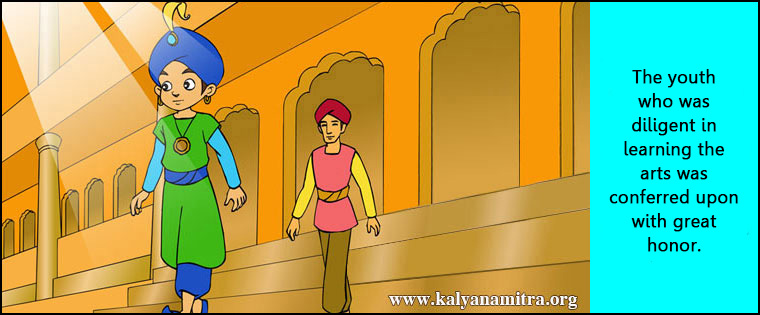
The Origin of the Story
The Lord Buddha while in residence at the Bamboo Grove Monastery gave this religious discourse with reference to Venerable Culapanthaka.
The story of Jātaka
It is said that in the city of Rajagaha, the daughter of a rich banker, on coming of age was closely guarded by her parents on the upper story of a seven-storied palace. Because of her caprice due to her young age, she developed an ardent longing for the opposite sex and she cohabited even with her own slave and fearing that other people might come to know of it, they went and lived in some place unknown to others. As a result of their living together, she later gave birth of two sons. Because of the fact that they were born on the road, the first born child was named Mahapanthaka and this other Culapanthaka.
While they were living there, the boy Mahapanthaka heard other children addressing their uncles and grandparents, he spoke about visiting the grandparents repeatedly. Both of them, taking the sons, went to Rajagaha by stages and stopped at a certain rest-house at the gate of the city. The mother sent information to her parents about her arrival with the two boys. The parents rejected to have them in their presence but let them send the boys to their house. The boys grew up in the home of grandparents. Of them Culapanthaka being very young, only Mahapanthaka used to go with his grandfather to listen to religious discourse. While visiting the Buddha regularly, he developed an inclination to become a monk and he asked his grandfather for permission. He mastered many teachings of the Buddha and when he attained the right age, he was ordained and, carrying out the subject of meditation with careful attention, he attained Arahatship.
While living in the bliss of meditation and the fruition, he thought thus, ‘Would it not be possible to give this bliss to Culapanthaka.’ Then approaching the banker, the grandfather gladly admitted Culapanthaka to become monks. The venerable Mahapanthaka admitted him into the Order and established him in the moral precepts. Soon after his admission into the Order, he was found to be slow in his spiritual progress. He was unable to master even one verse in four months. Thus as he was striving to learn that very single verse, Venerable Mahapanthaka drove him out of the monastery. Venerable Culapanthaka, out of attachment to the teachings of the Buddha had never aspired for a life of a householder.
At that time Venerable Mahapanthaka was in charge of assigning monks to invitations to meal. At that time Jivaka, the Komarabhacca taking with him plenty of flowers and scents went to his Mango-grove Monastery, offered them to the Buddha. Having listened to the preachings, he left the seat approaching Venerable Mahapanthaka requested him to take his food at his house with five hundred monks headed by the Buddha. Venerable Mahapanthaka accepted the invitations for the monks except for a certain Culapanthaka as he was not suitable for being dull and unprogressive in the Dhamma. Venerable Culapanthaka thought the Elder must have been disappointed with him thus he should better revert to a household life and live giving charity and doing other meritorious deeds.
On the next day early in the morning he set out to give up his monkhood. The Lord Buddha surveying the world early in the morning, saw that incident and going ahead, was strolling about in front of the door by which Venerable Culapanthaka was passing by. Venerable Culapanthaka on his way saw the Buddha and, approaching him, paid him obeisance.
The Buddha asked him, ‘Culapanthaka, where are you going at this time of the day?’ Lord, my brother drives me away, therefore I am going to leave the Order.’ ‘Culapanthaka, your admission is my concern, when you were driven out by your brother why did not you come to me? What good can there be for you to turn back to household-life, come, stay with me.’ So saying, He gave him a clean piece of cloth produced by the supernormal power, said to him ‘Culapanthaka, remain here facing the East and go on rubbing this piece of cloth, while reciting repeatedly these words ‘Taking on the impurity, Taking on the impurity’ (rajoharanam).
Then when He was informed of the time, went to the residence of Jivaka accompanied by the order of monks and sat down on the seat prepared.
As Venerable Culapanthaka went on rubbing that piece of cloth it became soiled. And as sequel he thought: ‘This piece of cloth was very clean but because of me it has changed its original form and has become soiled.’ Thus he reflected on the thought that constituted things indeed are impermanent, he fixed his mind on the decay and destruction and intensified his spiritual insight. Eventually he was able to attain the Arahatship together with analytical knowledge.
Jivaka Komarabhacca was bringing libation water to pour as a mark of donation to the Dasabala (Buddha). And the Buddha covered the bowl with his hand saying, ‘There is a monk staying back at the monastery, Jivaka.’ Jivaka sent a man to the monastery to invite the venerable. After the meal, Venerable Culapanthaka delivered a religious discourse embracing the three Pitakas roaring like a young lion.
At that time, monks from various places gathered together and sitting down like an encircling woolen screen, started to talk about the virtues of the Buddha thus, ‘Brethren, Mahapanthaka for not understanding Culapanthaka’s intrinsic worth, expelled him from the monastery with the thought that he was dullard as he could not master even a single verse in four months. The Perfectly Enlightened One through his unexcelled supremacy in respect of the Dhamma, helped him attain Arahatship together with analytical knowledge even within a short time of the duration of a meal time and he (Culapanthaka) became versed in three Pitakas and the analysis of them. Mighty and powerful indeed are the Buddhas.’
At the same time the Buddha, becoming aware of the theme of that discussion in that religious gathering, decided to go there immediately. When the monks informed Him such and such was the topic, the Buddha declared, ‘O monks, not only now is Culapanthaka a dullard. In the former existence also he was the same. Not only now I am his refuge but in the past existence also I had been so. Not only had I made him the possessor of material wealth in the former existence, now too I have made him the possessor of transcendental virtues.’ Being requested by the monks who were intent on hearing in detail, the Lord Buddha brought forth the past.
The revealing of the identities
-
What are learned from the story:
1.Perseverance is a salient factor of working success.
2.A leader should first acquire all necessary relevant information so as to analyze for the final decision.
3.A person with a sense of gratitude is able to be prosperous in life.
The End